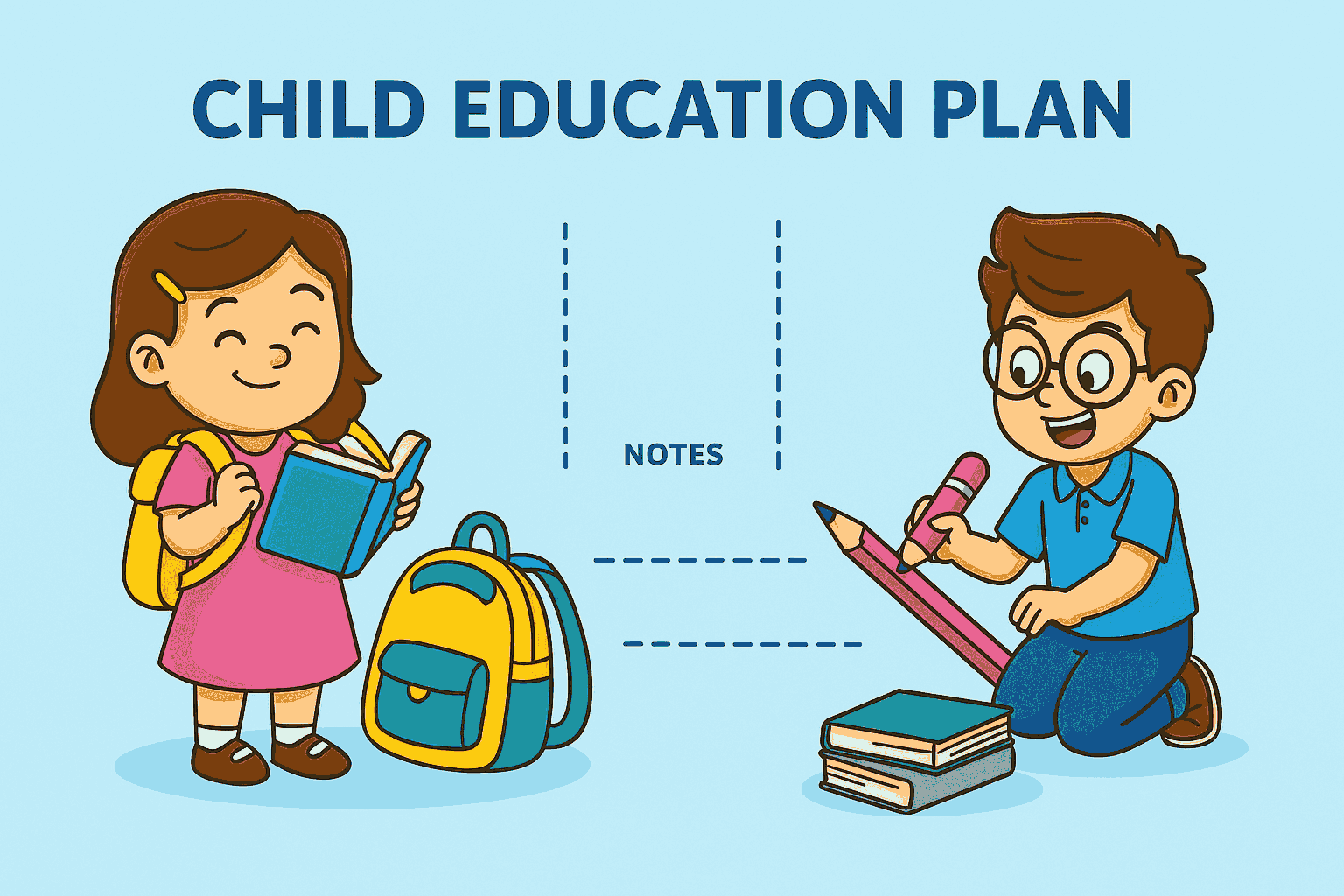
Every parent dreams of giving their child the best possible education. But with rising tuition fees, school fees, and higher education costs, this dream can become a huge financial burden. A proper child education plan will ensure that you are financially prepared for your child’s school, college, or overseas studies without stress. Below, we’ll tell you why an education plan is essential, how to choose the best child education plan, and what factors to consider for your child’s bright future.
Financial Security: Guarantees funds for your child’s schooling and higher studies.
Inflation Protection: Education costs rise every year; planning early helps you beat inflation.
Peace of Mind: Ensures your child’s education continues uninterrupted, even in your absence.
Goal-Oriented Saving: Helps you save with a clear timeline and amount in mind.
Future-Ready Funding – Secure money for school fees, college admissions, and professional courses.
Flexible Payouts – Get funds at different stages of your child’s academic journey.
Insurance Cover – Many plans include life cover to protect your child’s education if anything happens to you.
Tax Savings – Enjoy benefits under Section 80C and 10(10D) of the Income Tax Act.
Investment Growth – Your savings are invested to grow over time, helping you accumulate more.
1. Child Education Policy
A traditional insurance policy that provides financial protection for your child's education in the event of unforeseen events.
2. Child Education Investment Plan
Your premiums are invested in market-linked funds for higher returns, combining investment and insurance.
3. Education Savings Plan for Child
A pure savings plan dedicated to building an education fund for your child without life insurance benefits.
4. Child Higher Education Plan
Specially designed to meet the costs of your child's university or professional courses, including overseas studies.
Start Early – The earlier you start, the more you save and grow your investments.
Assess Education Costs – Calculate future costs for school, college, and higher studies.
Check Flexibility – Look for plans that allow partial withdrawals at key education milestones.
Compare Policies – Compare benefits, maturity value, premium terms, and life cover.
Look for Bonuses – Some plans offer loyalty bonuses, maturity additions, or guaranteed returns.
Identify Your Goal – Decide the type of education you want for your child (domestic, international, professional courses).
Estimate Future Costs – Include tuition, hostel, travel, and other educational expenses.
Select the Right Plan – Choose between a policy-based or investment-based education plan.
Decide Premium Amount – Based on your budget and the estimated education cost.
Review Periodically – Adjust your plan as your income and education costs change.
More time to save and invest.
Lower premium amounts.
Greater benefit from compounding returns.
Financial cushion against unexpected expenses.
Guaranteed payouts at specific ages.
Premium waiver in case of the policyholder’s demise.
Flexibility in investment options.
Option to increase coverage as your child grows.
Q1: What is the difference between a Child Education Plan and a regular savings plan?
A child education plan is designed specifically for education-related expenses and usually covers a lifetime, ensuring that your child's education is secure even if something happens to you. A regular savings plan may not have this focused goal or protection.
Q2: Which is the best child education plan for 2025?
The best plan depends on your budget, your child's age, and your investment goals. Look for one that has flexible payments, good returns, and adequate life cover.
Q3: How much should I invest in a Child Education Policy?
It depends on the estimated cost of future education. Start with a target amount and work backwards to determine your premium.
Q4: Can I use the Education Savings Plan for Child for overseas education?
Yes, funds from such schemes can be used for any education-related expenses, including overseas education and living expenses.
Q5: What happens if I can’t pay the premium on time?
Most plans have a grace period. If you miss multiple payments, the plan may lapse, but some offer reinstatement options.
Planning for your child's education is one of the most valuable gifts you can give them. A child's education plan or the best child's education plan not only secures their educational future but also ensures peace of mind for you. Start early, choose wisely, and review your plan regularly to stay on track. Your child's dreams deserve a strong financial foundation - and the right plan can help you build it.